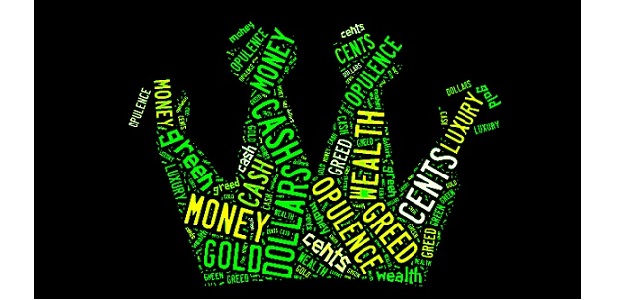
A study of seven countries shows reports of the death of cash have been greatly exaggerated.
Everywhere you look, someone is trying to kill off cash.
India eliminated 23 billion notes from circulation in an effort to fight tax evasion and corruption. Bitcoin and mobile payments are still hyped as the wave of the future while credit cards offer increasingly aggressive rewards. An influential U.S. economist wants to stop printing denominations of $20 and above. His goal: help central banks impose negative interest rates as monetary policy.
But try as everyone may, cash registers are still bursting with paper bills and metal coins. Cash is alive and well, according to a new study of the spending habits of more than 18,000 people in seven countries.
“Many have predicted and espoused the view that cash is increasingly disappearing as a payment instrument,” the authors 1 write. “However, to paraphrase Mark Twain, we would say that the reports of the death of cash have been greatly exaggerated.”
The value of dollars and euros in circulation has doubled since 2005, to $1.48 trillion and €1.1 trillion, respectively. Some of that growth can be explained by demand for these currencies in foreign countries, but there’s also plenty of evidence that Europeans and Americans are still carrying around wads of cash.
The new research crunches and compares data on payment choices in Australia, Austria, Canada, France, Germany, the Netherlands, and the U.S. The study shows notable differences among these countries: Germans and Austrians carry around and use the most cash; the Dutch love debit cards; paper checks are still relatively common in France and the U.S.
The bottom line, however, is that consumers in all seven countries use cash more often than they use any other payment method. Cash is least popular in the U.S., where it’s used for 46 percent of all transactions, vs. 26 percent for debit cards and 19 percent for credit cards.
Cash’s niche is for small transactions. The typical person makes one or two purchases a day. For the cheapest half of those, consumers in all seven countries prefer cash the vast majority of the time. For more expensive purchases, top payment choices vary significantly from country to country. Austrians and Germans still use cash for big purchases, but most other countries prefer debit, credit, or checks.
Because cash is used so often for small purchases, it ends up taking a smaller share of the total value of transactions, at least outside Austria and Germany.
In five of the seven countries, typical consumers have the equivalent of about $30 on them at any given time. The cash-reliant Austrians and Germans carry a lot more.
There’s no single explanation for why consumers won’t ditch cash. One factor is merchants who don’t accept cards, or who encourage cash for small purchases. Cash may also be a habit that people haven’t gotten around to breaking. Older people are a bit more likely to use cash than the young in every country except the U.S.
Maybe consumers just prefer cash, especially for small, quick transactions. That’s the conclusion of survey data available for five of the countries studied. Only the Dutch rated debit higher than cash in terms of its acceptance, cost, and ease of use. Americans rated debit and cash the same, while Austrians, Canadians, and Germans rated cash higher than debit.
Also, it bears noting that cash is anonymous and largely invisible to both tax collectors and debt collectors. It won’t trigger finance charges or overdraft fees. And perhaps its biggest practical advantage is that it offers a tangible way of keeping track of your spending in real time, working even when your phone’s battery is dead. That may be why, in all seven countries, the study found low-income people were far more likely to use cash than high-income consumers.
Source: Bloomberg
Banking 4.0 – „how was the experience for you”
„So many people are coming here to Bucharest, people that I see and interact on linkedin and now I get the change to meet them in person. It was like being to the Football World Cup but this was the World Cup on linkedin in payments and open banking.”
Many more interesting quotes in the video below: